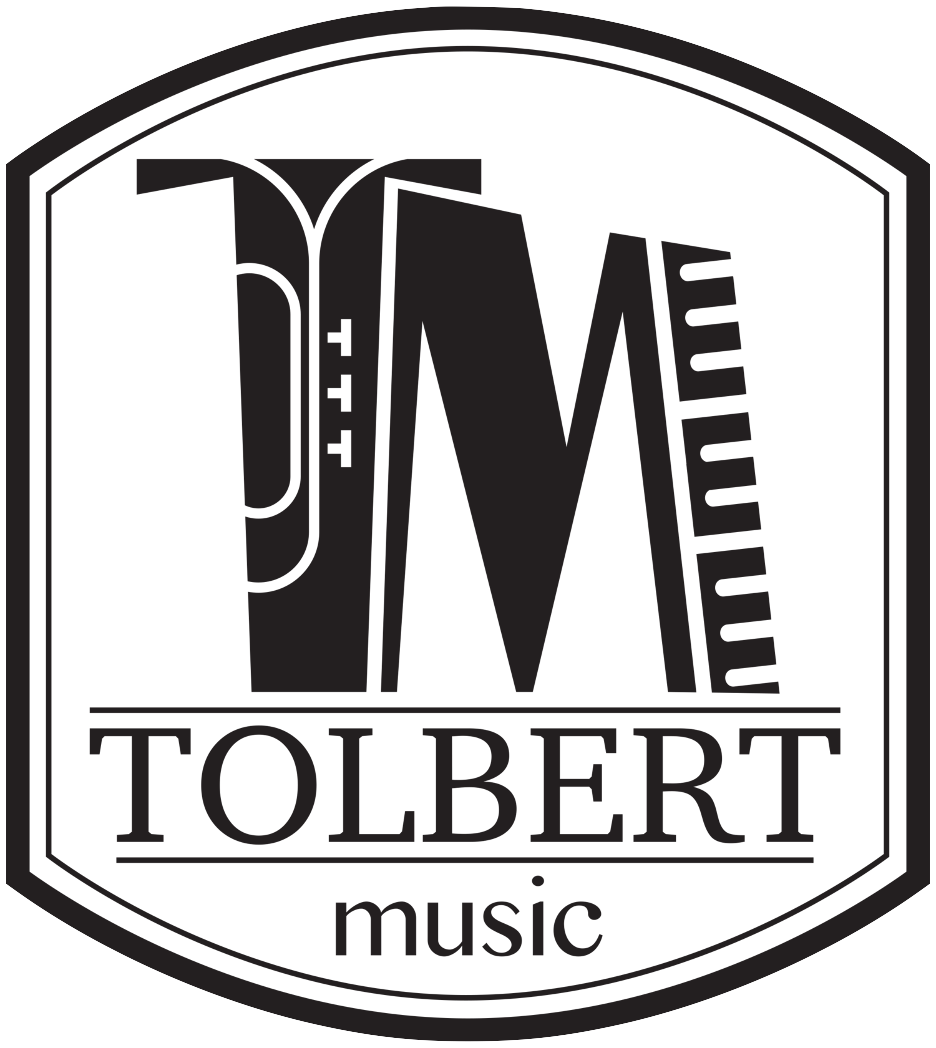It must be said up front that Tolbert Music’s philosophy will vary slightly from teacher to teacher. One of the principal values that I have embraced into my company is that I respect the professional autonomy of my teachers. I hire good people, embrace differences, and we grow as a team. That said, we wouldn’t be working together if there were not some unifying principles.
The most definitive trait of our teaching is that we treat music as a ‘cumulative’ knowledge set. By this we mean that the knowledge of the subject is acquired sequentially, and later knowledge cannot be acquired without earlier knowledge. This isn’t always the case of course - you can learn about Mozart without learning about quarter notes - but we treat it this way for very specific reasons. You don’t show up to soccer practice and have a lesson about famous soccer players. You put the ball on the field and start kicking. Standard music curriculums are often scattershot educations in this way. We put instruments into our students hands and get them playing right away. We get our students focusing immediately on specific goals of growth that will accumulate over time into a tangible skill. We don’t wait to teach musical literacy or artistry - even our youngest students are establishing their reading skills and learning to play expressively. In class settings this involves getting the kids on a unified page, and trimming a lot of the fat from standard music curriculums. In a private lesson setting this involves pacing the student through a method book such that they develop a repertoire of known songs, and establish each targeted skill permanently, so that it can be called upon for future use.
In musical terms, this means that first we establish the ability to reliably make decent sounds on the instrument. We don’t dwell on this in the same way a Suzuki studio might, but a firm basis of instrument technique is important before introducing literacy in a serious way. Once literacy begins and advanced techniques are explored we revisit our basics constantly through short but highly focused drills to maintain and hone them. Think of a pro basketball player doing dribbling drills - they will always be striving to hone this skill and make it better. This happens astride the development of a repertoire of songs that is progressive in difficulty, and paced according to student progress. We love to pick a “project song” to work on that is loved by the student. This is often from an association with a movie or game they enjoy, or because they are thirsty for something extra challenging to try to impress their teacher and parents. Any motivation will do for us on this account, but this material is developed as a supplement to the steady and measured progress through the cumulative knowledge set of music education.
At the end of it all, we want students to leave our studio with a deep appreciation of music and the skills required to be an independent musician. The most common regret among adults is either that they did not learn a musical instrument, or that they quit the one they were learning. We aim to conquer this fact. We aren’t pushing all our students to be on the stage at Carnegie Hall, though we are thrilled when we find one who is motivated to do this. All of our students establish firm fundamentals that will teach them a deep appreciation of music and allow them to be independent musicians - FOR LIFE.
